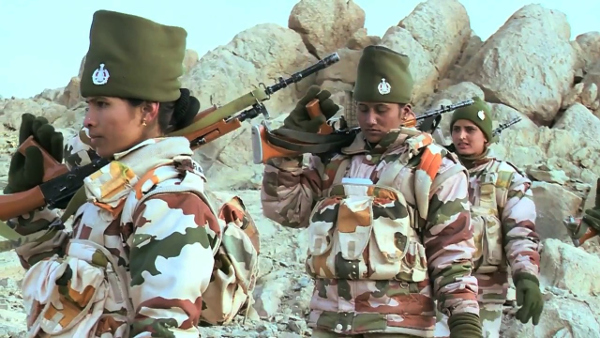NEW DELHI : India is ramping up its infrastructure by establishing more border outposts and has increased its manpower and patrolling along the Line of Actual Control with China.
The development was shared by the Indo-Tibetan Border Police (ITBP) Director General S S Deswal on Wednesday. Deswal explained that since the last five years 25 Border Outposts (BOPs) have been created for the ITBP along the border with China. Seven out of 25 BOPs are in Ladakh and 10 more are planned to come up. A BOP has a strength of about 100 troops, meaning there has been a deployment of 2,500 soldiers. There are currently about 180 BOPs. He also said that patrolling along the LAC has increased due to this.
“In the past four to five years, 25 BOPs have been established and the manpower increased. At every BOP, a company (about 100 soldiers) is deployed. We keep adding BOPs so that our patrolling increases at the border…this year we will survey the border on how many more BOPs we need, where we feel that due to our logistical and administrative support we can go closer to the border…Today with the construction of roads and added infrastructure our accessibility to the border has increased,” he told reporters.
To manage its areas of responsibility in Eastern Ladakh better, the ITBP has shifted its North-West Frontier headquarters from Chandigarh to Leh. With the cabinet on Wednesday approving the cadre review of the ITBP, a Western Command at Chandigarh and an Eastern Command in Guwahati is likely to be established. The ITBP had proposed the two commands.
Deswal added that in the last five years, the construction of ITBP priority roads has witnessed a major boost, while there was a delay in the past. In phase 1, a total of 11 roads of 277.5 km length have been constructed. Formation cutting for five more roads have been completed. For phase 2, 45 roads having a length of 1033.52 km have been approved. In Arunachal Pradesh, construction of 18 important tracks have been approved.
Officials said that the ITBP carries out about three to four Long Range Patrols, which last for about three weeks, in a year. It also does about four Short Range Patrols in a month. These are mainly for ensuring ‘dominance’ in an area. They are also important for laying claim to a disputed area. “Incursions happen due to difference in perception. There are some pockets at the border, where both sides lay claim to it. Both of us patrol these areas. In any disputed area, we patrol and so do they…We patrol more than them,” Deswal said, adding that there are five such disputed areas, including three in Ladakh and the rest in Uttarakhand and Arunachal Pradesh.
Quite often patrols also witness face-offs. “Several times patrols from both sides come through the same route and come face to face. That is when there is a face-off,” he said, without giving a number on how many such face-offs have taken place.
Last month a scuffle broke out between Indian and Chinese patrols along the banks of the Pangong Tso in Eastern Ladakh.
However, Deswal added that the situation along the LAC is currently peaceful. “We two countries have a good understanding with each other. There is an agreed mechanism to find solutions to all situations arising at the border. That mechanism is perfect and the border is safe and secure,” he said.
To remove misunderstandings, about 200 ITBP troops have been taught the Mandarin language to interact with Chinese soldiers.
Source: ET
You may also like
-
IAF Aircraft Set Course For Exercise Eastern Bridge VII At Oman
-
IAF Set To Host The Indian Defence Aviation Exposition-II At Jodhpur
-
Defence Secretary to co-chair 5th India-Philippines Joint Defence Cooperation Committee meeting in Manila
-
Simultaneous Launch Of ‘malpe And Mulki’, Fourth And Fifth Ships Of Asw Swc (Csl) Project
-
Aatmanirbharta in Defence: MoD signs Contract with HAL for 240 AL-31FP Aero Engines for Su-30MKI Aircraft
